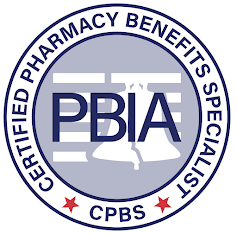Copay Accumulators: Implications for PBMs and Health Plans After Court Strikes Down HHS Rule and other notes from around the interweb:
- Copay Accumulators: Implications for PBMs and Health Plans After Court Strikes Down HHS Rule. The striking down of the 2021 HHS rule on copay accumulators represents a significant development that necessitates adaptation from health plans and PBMs, who will need to adjust their operations on not just copay accumulator programs, but also copay maximizers and potentially alternative funding programs (the most recent evolution of these copay adjustment programs), to align with the reinstated federal rule. This may involve revising policies and procedures to ensure compliance and communicating the changes in copay accumulator policies to members to ensure transparency and clear communication so that members understand their cost-sharing responsibilities. Additionally, health plans and PBMs may need to reevaluate their formulary and benefit design to accommodate the new regulatory landscape while continuing to provide cost-effective and quality care to patients.
- Pharmacy Benefit Manager Pricing and Spread Pricing for High Utilization Generic Drugs. The practice by pharmacy benefit managers (PBMs) of spread pricing—charging the client (i.e. insurer) a higher amount than is reimbursed to the pharmacy—has garnered substantial attention from policymakers. The bipartisan proposals in the PBM Transparency Act and PBM Reform Act and numerous state laws prohibit spread pricing. However, others in the pharmaceutical supply chain, such as pharmacies and wholesalers, also rely on spread pricing to earn profits. The gross profit for each entity in the supply chain remains unexplored in the literature. Using Medicare Part D data, this study analyzed entity-level gross profit in the pharmaceutical supply chain for high-utilization generic drugs.
- Employers take tougher measures because of rising health costs. Employers are facing the biggest annual increase in health care costs in a decade, according to Mercer. Two-thirds of the employer health insurance market is in self-insured plans, in which an employer is on the hook for some or all of workers’ health care costs rather than an insurer, according to KFF. However, they work with third parties — often well-known health insurance brands and pharmacy benefit managers — to administer their benefits. Large, self-insured employers over the past year have been able to examine insurers’ negotiated rates with providers, thanks to federal price transparency rules. Congress, meanwhile, is looking at strengthening transparency requirements. These employers are beginning to see that their own arrangements aren’t always working to their benefit, said Rob Andrews, CEO of the Health Transformation Alliance, which includes member companies like Marriott, Coca-Cola and American Express.
- Competition in Commercial PBM Markets and Vertical Integration of Health Insurers with PBMs: 2023 Update. Based on 2020 data and newly acquired 2021 data for people with a commercial drug benefit tied to a medical benefit and the PBMs used by insurers, the updated analysis presents market insight on five PBM services performed for insurers: rebate negotiation, retail network management, claim adjudication, formulary management, and benefit design. Insurers face a make-or-buy decision—they can perform these functions in-house or buy them from a PBM. The AMA Policy Research Perspectives report, “Competition in Commercial PBM Markets and Vertical Integration of Health Insurers with PBMs: 2023 Update”, found that insurers largely use a PBM for three of them—rebate negotiation, retail network management and claims adjudication—and therefore assessed market competition for those three product markets.
